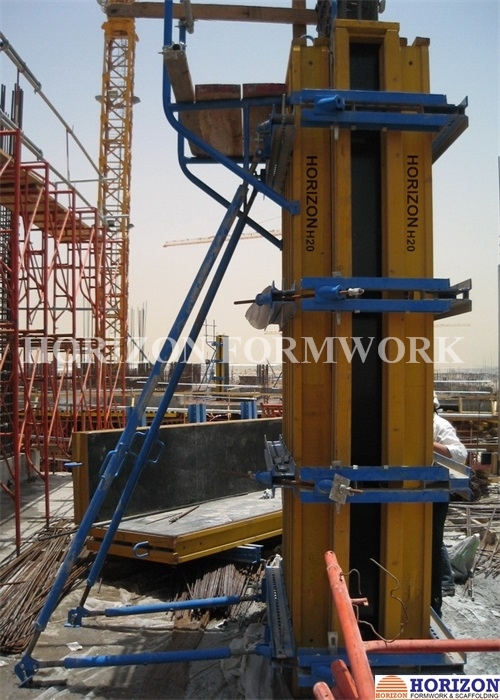டிசம்பர் . 03, 2024 16:25 Back to list
Concrete Column Formwork Solutions from Leading Manufacturers for Efficient Construction
Understanding Formwork for Concrete Columns A Guide for Manufacturers
Concrete columns are a crucial element in many construction projects, providing structural support and stability. To ensure the integrity and quality of these columns, formwork plays a pivotal role. For manufacturers, understanding the essentials of formwork for concrete columns is vital for delivering top-quality products that meet industry standards. In this article, we will explore the various types of formwork, their applications, and the benefits of using advanced techniques in manufacturing.
What is Formwork?
Formwork refers to the temporary or permanent molds used to hold concrete in place while it sets and cures. It is essential for creating the precise shapes and dimensions of structural elements such as columns, beams, and slabs. The effectiveness of formwork directly impacts the finished quality of the concrete, so it is crucial for manufacturers to ensure that their formwork systems are designed and manufactured to exacting standards.
Types of Formwork for Concrete Columns
1. Traditional Timber Formwork This classic approach involves using wooden planks and beams to create molds for concrete. While it can be cost-effective and easy to customize on-site, timber can be prone to warping and may require significant labor input. This method is more suitable for small projects or when capital investment is limited.
2. Steel Formwork Steel formwork systems are robust and durable, making them ideal for large-scale projects. They provide a high degree of strength and can be reused many times, resulting in lower long-term costs. The surface finish produced with steel formwork is often superior, allowing for less finishing work after the concrete cures.
3. Aluminum Formwork Lightweight and easy to handle, aluminum formwork systems are becoming increasingly popular. They are particularly useful in projects with repetitive shapes, as they can be easily assembled and dismantled. Furthermore, aluminum formwork enables better temperature control during the curing process, enhancing the overall quality of the concrete.
4. Modular Formwork This innovative system consists of pre-fabricated components that can be quickly assembled on-site. Modular formwork allows for flexibility in design and is suitable for different shapes and sizes of columns. Its ease of use reduces labor costs and speeds up the construction process, making it an attractive option for manufacturers.
formwork for concrete columns manufacturer

Benefits of Advanced Formwork Systems
Investing in advanced formwork systems can yield numerous benefits for manufacturers, including
- Improved Quality Control High-quality formwork ensures that concrete columns maintain their intended shape and size, reducing the likelihood of defects and the need for rework. This leads to higher overall project quality and client satisfaction.
- Increased Efficiency Modern formwork systems can be assembled and disassembled quickly, helping contractors reduce construction timelines. Faster completion of projects can lead to increased turnover for manufacturers and contractors alike.
- Cost-Effectiveness Although the initial investment in advanced formwork systems might be higher, the long-term savings from reduced labor costs, improved durability, and reusability are significant. Additionally, the minimized risk of mistakes in concrete pouring can save on materials and labor associated with repairs.
- Sustainability With a growing emphasis on sustainable building practices, the use of formwork that minimizes waste and promotes recycling can appeal to environmentally-conscious clients. Manufacturers that prioritize eco-friendly practices may find a competitive edge in the market.
Conclusion
For manufacturers focusing on formwork for concrete columns, understanding the different types of formwork and their benefits is crucial for staying competitive in the construction industry. By embracing innovative technologies and sustainable practices, manufacturers can enhance their product offerings and meet the evolving demands of the market. As construction methods become more advanced, staying informed about the latest trends and techniques in formwork will ensure that manufacturers continue to play a vital role in delivering quality concrete structures that stand the test of time.
In summary, the choice of formwork is not just about meeting technical specifications; it reflects a manufacturer’s commitment to quality, efficiency, and sustainability in the ever-evolving world of construction.
-
Premium Ringlock Scaffolding | China Manufacturer & Supplier
NewsAug.19,2025
-
Efficient Table Formwork for Fast Slab Construction & Reusability
NewsAug.18,2025
-
Timber Beam H20 Formwork & Shuttering - Durable & Reliable
NewsAug.17,2025
-
Timber Beam H20: Premium Formwork & Shuttering Solutions
NewsAug.16,2025
-
Premium H20 Timber Beam for Formwork & Slab Shuttering
NewsAug.15,2025
-
China Single Sided Wall Formwork: Fast, Flexible Solutions
NewsAug.14,2025